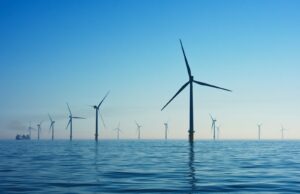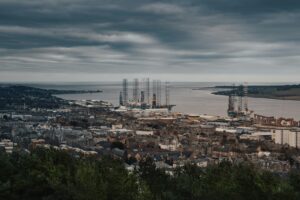Oil and gas company BP has pledged to become net-zero by 2050, but how exactly they will do this remains unclear.
BP says they will become net-zero in their oil and gas production operations, which currently creates around 55 million tonnes of CO2 equivalent a year and they will also cut the carbon intensity of all its products by 50%.
According to the company, the delivery of these two aims will equal a reduction in emissions to net-zero from what is currently around 415 million tonnes of CO2 equivalent a year.
The company will also install methane measurements at all major oil and gas sites by 2023 and then reduce its methane emissions by 50%, they will also increase its investments into non-oil and gas businesses.
They will also increase their active advocacy for policies that support net-zero emissions, for example, carbon pricing, and will launch a new team to help countries, cities and other large companies to decarbonise.
Bernard Looney, BP’s new CEO said: ‘We will directly address all the carbon that we get out of the ground as well as all the greenhouse gases we emit from our operations.
‘These will be absolute reductions, which is what the world needs.
‘If this were to happen to every barrel of oil and gas produced, the emissions problem for our sector would be solved.
‘But of course, the world is not that simple, the whole energy system has to be transformed and everyone has a contribution to make – producers and sellers of energy, policymakers and everyone who uses energy.’
The announcement was met with scepticism from leading green groups.
Charlie Kronick, oil advisor from Greenpeace UK said: ‘BP’s ambitions and aims all seem to apply to Looney’s successors, and leave the urgent questions unanswered.
‘How will they reach net-zero? Will it be through offsetting?
‘When will they stop wasting billions on drilling for new oil and gas we can’t burn?
‘What is the scale and schedule for the renewables investment they barely mention?
‘And what are they going to do this decade, when the battle to protect our climate will be won or lost.’
Photo Credit – Pixabay
















